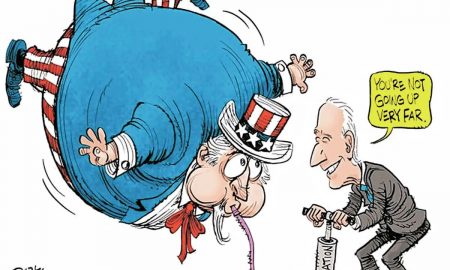
The Tyson Foods Boycott Explained – The Rise of Online Activism

Tyson Foods, a powerhouse in the meat and poultry industry, is in hot water following its controversial decision to lay off 1,200 employees at its Perry, Iowa plant. The move, perceived as a cost-cutting measure to replace American workers with cheaper immigrant labor, has ignited a fierce backlash online. The hashtags #BoycottTyson and #BoycottTysonFoods have been trending, fueled significantly by fake accounts that amplify the controversy.
Understanding the Backlash Against Tyson Foods

Instagram | tysonfoods | In mid-March, Tyson Foods closed its Perry plant, the seventh shutdown this year.
In mid-March, Tyson Foods announced the closure of its Perry plant, marking the seventh plant shutdown this year. This decision came amid declining demand for certain products, affecting 1,200 employees. The company’s plan to hire immigrants sparked outrage, prompting many to call for a boycott.
Cyabra, a digital analysis firm, investigated the trending hashtags and discovered that 14% of the profiles discussing the boycott on X (formerly known as Twitter) were fake. These fake profiles played a pivotal role in spreading negative messages, reaching over 1.1 million potential views. This manipulation of online discourse underscores the significant impact bots can have on public opinion and brand reputation.
The Role of Bots in the Tyson Foods Boycott
Cyabra’s analysis identified 1,371 profiles participating in the boycott discussion, with 14% being fake accounts. These bots were particularly active on March 16, the peak day for the hashtags. Although a small fraction of the overall conversation, these fake profiles significantly amplified the call to boycott Tyson Foods by disseminating negative content widely.

Instagram | tysonfood | The fake profiles significantly impacted Tyson Foods, potentially influencing over a million views with negative messaging.
These fake profiles accused Tyson Foods of prioritizing profit over American jobs, portraying the company as exploiting the economic downturn. The bots used the viral hashtags to both criticize Tyson Foods and boost their own visibility on social media by posting unrelated content.
Impact on Tyson Foods’ Reputation
The fake profiles’ activity had a notable impact, potentially influencing over a million views with their negative messaging. This kind of digital manipulation can transform a minor issue into a major PR crisis, severely damaging a brand’s reputation. In Tyson Foods’ case, the fake profiles helped turn the #BoycottTyson movement into a widespread trend, illustrating the powerful role bots play in shaping online narratives.
How Companies Can Combat Fake Profiles
The increasing prevalence of bots in social media discussions presents a growing challenge for companies. Marketing and PR teams must stay vigilant and adopt innovative technologies to detect and mitigate the influence of fake accounts. By doing so, companies can protect their brand reputation and maintain consumer trust.
To effectively combat this issue, companies should consider:

Freepik | pch.vector | Using advanced tools to detect fake profiles and monitor online discussions instantly.
- Investing in Advanced Monitoring Tools – Utilizing sophisticated tools that can identify fake profiles and monitor online discourse in real time.
- Proactive Reputation Management – Engaging in transparent and proactive communication with the public to address concerns and counteract misinformation.
- Strengthening Community Engagement- Building a loyal and engaged customer base that can help defend the brand against misleading narratives.
The Tyson Foods boycott highlights the need for companies to be aware of the potential impact of fake accounts on social media. By staying ahead of these challenges and employing effective strategies, businesses can navigate the complexities of the digital landscape.
More in Business
-
`
Barbie Movies Are Outperforming Other U.S. Movies in China – Here’s Why
The Barbie movie is a huge hit in China! While lots of American movies usually do not do so well there,...
April 26, 2024 -
`
Hollywood Greatest Comebacks: Actors Who Staged Remarkable Returns
Hollywood may sparkle with glitz and glamor, but it’s a tough business. Stars who once basked in the spotlight can find...
April 26, 2024 -
`
Misinformation Is the New Normal: How You Can Spot Misinformation Online
In the ever-evolving world of the Internet, where information and misinformation intertwine like vines, it is essential to know how to...
April 25, 2024 -
`
America is Rich But Americans Are Poor | This Best-Selling Book Explains Why
In the midst of America’s wealth and global dominance lies a startling and often overlooked reality: The persistent existence of poverty....
April 25, 2024 -
`
What They Don’t Teach You in School About Money
From an early age, we’re told that going to school and getting a degree will set us up for financial success....
April 24, 2024 -
`
Work Presentations: How to Say Goodbye to Boring Office Meetings
Picture this: you’re in a conference room, surrounded by colleagues. The lights dim, a projector flickers to life, and there they...
April 24, 2024 -
`
Essential Documents for Opening a Business Bank Account: Your Checklist
Embarking on the entrepreneurial journey is exhilarating, but navigating the financial side of your venture requires thoughtful consideration. One pivotal step...
April 23, 2024 -
`
Gwyneth Paltrow Was Once Called out by NASA for This Bizarre Reason!
Once upon a time, Gwyneth Paltrow was considered to be one of the most promising actresses of her time. While she...
April 23, 2024 -
`
Discover the Royal Charm of Villa Maria Pia in Cascais, Portugal
Nestled on the sun-kissed north shore of Lisbon, the captivating town of Cascais, Portugal, harbors a secret steeped in royal history....
April 22, 2024















You must be logged in to post a comment Login